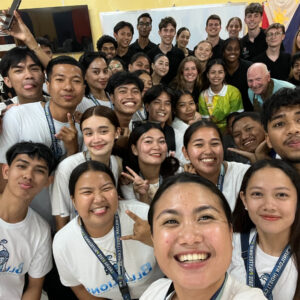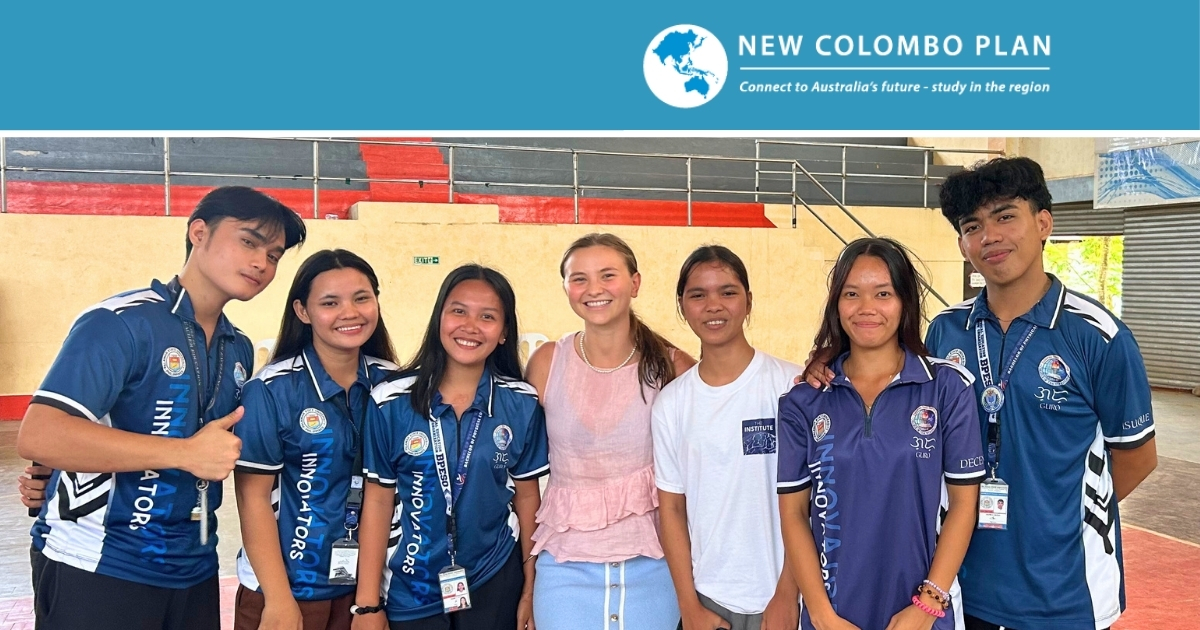St Andrew’s student Millie Taylor (Fr 2024), currently studying a Bachelor of Exercise Science/Master of Exercise Physiotherapy and Exercise Physiology at the University of New South Wales (UNSW), recently participated in the New Colombo Plan program in the Philippines. Funded by the Australian Government, the initiative is designed to foster deep regional ties between Australia and the Indo-Pacific region. A grant was awarded to UNSW to send 15 students to Asia to build relationships with university communities and share cultural perspectives. The program aimed to facilitate the sharing of knowledge and practices, allowing host institutions to incorporate new ideas within their own programs.
The four-week program brought together students from allied health fields, including exercise physiology, to work alongside peers from the University of the Philippines (UP). Activities involved collaborative health testing, showcasing equipment, and comparing data, with the aim of helping the host university adapt new approaches into their curriculum. The students spent time both on the UP campus in Manila and in the Palawan Islands, gaining insight into the contrast between urban and regional healthcare and education.
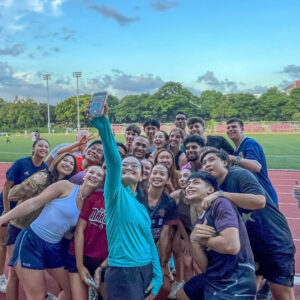
During her visit to Palawan State University (PSU), Millie observed the limited availability of health-related study options. While the university offers programs such as preparatory medicine and medical science, it does not offer degrees in fields like exercise science, physiotherapy, or physiology. This gap made the experience particularly meaningful for Millie, who found it rewarding to share her knowledge and expertise in an area that was not otherwise accessible to local students.
Millie also observed the systemic challenges many Filipino students face. Although education in the Philippines is technically free, the cost of transportation and learning resources creates significant barriers. “Education is such a great equaliser,” she said, reflecting on its role in breaking cycles of poverty. In some cases, students attended classes while caring for young children, highlighting the resilience and determination of learners in the region.
The experience offered a deeper understanding of daily life in the Philippines. From congested streets in Manila, where public exercise options are almost non-existent, to the presence of heavily armed security guards even in shopping centres, Millie described being “initially shocked” but eventually feeling safer. The trip also revealed how fluency in English was often tied directly to education, with those unable to speak it likely having had no formal schooling.
Coming from a small country town in NSW, Narrabri, Millie described the trip as a cultural immersion and a life-changing moment. “I’d never been to Asia before,” she said, adding that being immersed with 15 other students helped her form lasting connections. “At university, friends are often just uni friends,” but this experience allowed her to build meaningful relationships beyond the classroom.
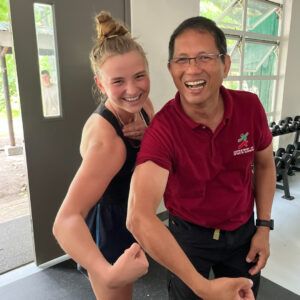
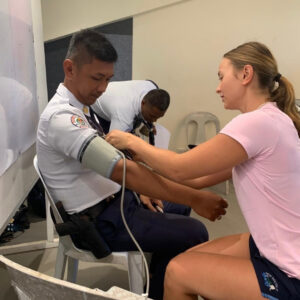
Professionally, the trip tested her capabilities. Recalling moments where she had to perform health assessments on civilians, some of whom were armed. “It was an invaluable opportunity to apply my clinical reasoning in real time, gaining hands-on experience in tailoring programs to meet the unique needs of diverse individuals.” The program gave her the confidence to act decisively and engage with communities in a real-world context.
Millie also reflected on the privileges often taken for granted in Australia. She returned with a deep appreciation for access to clean water, safety, and education. “In Australia, it feels like everyone goes to university as a right,” she said, contrasting that with the challenges she saw in the Philippines.
St Andrew’s College played an important role in preparing her for this opportunity. “I’ve grown a lot of self-confidence since being here,” she said. “Being around high achievers has greatly inspired me to accomplish more myself.” She credited the College with creating an environment that encouraged ambition and openness to new challenges.
Looking ahead, Millie hopes to act as an ambassador for the program and encourage more students to participate. She also expressed a desire to establish something in a third-world country to help disadvantaged communities. Her advice for others is simple: “Put yourself out there. Be confident,” and make the most of the opportunities that become available to you.
